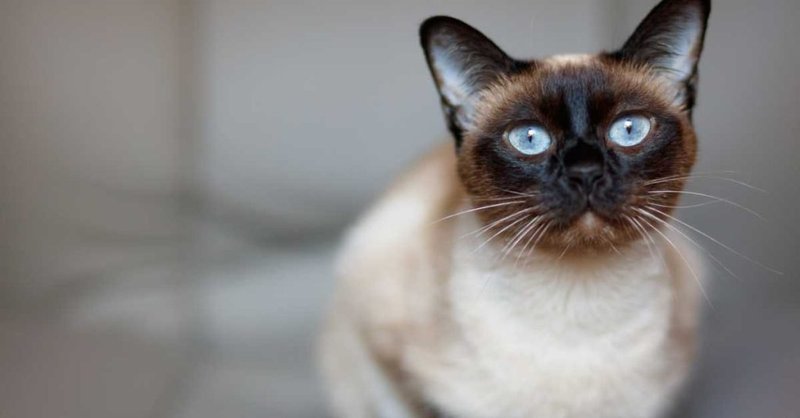
Just as a parent learns to navigate the ups and downs of their child’s health, as a cat owner, you need to be aware of the common health problems that could affect your Siamese cat. This isn’t just about knowing what to look out for; it’s also about knowing how to prevent these issues. So, let’s dive into some of the frequent health concerns for Siamese cats and how you can be proactive in keeping your beloved kitty happy and healthy!
Respiratory Issues in Siamese Cats
Siamese cats can be prone to certain respiratory conditions. Their unique facial structure can sometimes lead to breathing difficulties, a situation that’s all too common among brachycephalic breeds (those with short snouts). These issues can range from mild to severe, and recognizing the symptoms early can make a huge difference.
You might notice your Siamese cat having nasal congestion or wheezing. Just like how we might feel stuffy during allergy season, your cat could also struggle. If you see them breathing rapidly or coughing frequently, it’s essential to consult your vet. Regular check-ups and monitoring your cat’s breathing can help catch these problems before they escalate.
Prevention Tips:
- Keep your home dust-free and minimize allergens.
- Ensure your cat is at a healthy weight, as obesity can worsen breathing issues.
- Regular vet visits can catch any underlying problems early.
Dental Issues in Siamese Cats
Dental health might not be the first thing that comes to mind when thinking about your cat, but it’s super important. Siamese cats can struggle with dental diseases due to their genetic makeup. Imagine dealing with a toothache; it’s painful, right? Your cat feels the same way when they have dental problems.
You might not see a problem until it becomes serious, but symptoms like bad breath or difficulty eating can be signs of dental disease. Just like we go to the dentist, your cat needs dental care too—though thankfully, they won’t have to sit in a big chair!
Prevention Tips:
- Brush your cat’s teeth regularly with vet-approved toothpaste.
- Provide dental treats that can help reduce tartar buildup.
- Schedule dental check-ups with your vet to catch any issues early.
Kidney Disease in Siamese Cats
Kidney disease is a significant concern for many cats, but Siamese cats may be particularly prone to it as they age. Think of their kidneys like hardworking filters—they’re crucial for keeping the body running smoothly. Over time, these filters can wear out, leading to potential health issues.
Symptoms of kidney disease can be tricky to spot at first. You may notice changes in your cat’s drinking habits or a sudden increase in urination. If your cat seems lethargic or is losing weight unexpectedly, these could be red flags. Regular vet check-ups can help monitor kidney function and catch any signs early.
Prevention Tips:
- Encourage your cat to drink water; consider a water fountain for added appeal.
- Feed a balanced diet with high-quality protein to support kidney health.
- Monitor their weight and overall health regularly.
Heart Disease in Siamese Cats
Siamese cats are known to be at risk for heart disease, particularly hypertrophic cardiomyopathy (HCM). Imagine if your heart had to work extra hard all the time; eventually, that can lead to problems. The good news is that with early detection, many issues can be managed effectively.
Symptoms may include coughing, trouble breathing, or a sudden lack of energy. If your cat seems more tired than usual or you hear a strange sound when they breathe, it’s time to talk to the vet. Keeping an eye on these signs can make all the difference in your cat’s quality of life.
Prevention Tips:
- Regular vet check-ups can help catch heart problems early.
- Keep your cat at a healthy weight to reduce strain on their heart.
- Provide a stress-free environment to promote overall well-being.
Skin Issues and Allergies in Siamese Cats
Siamese cats can be pretty sensitive, and that includes their skin. Allergies can arise from various sources, from food to environmental factors like pollen or dust. You might liken it to how some of us get itchy when the seasons change; your cat can experience the same discomfort.
Look for signs like excessive scratching, bald patches, or red skin. If your cat is constantly grooming or is anxious, these can also be signs of skin issues. Identifying the triggers can take a bit of detective work, but it’s crucial for keeping your cat comfortable.
Prevention Tips:
- Use hypoallergenic products for grooming and cleaning.
- Monitor your cat’s diet; consider a limited-ingredient food if allergies are suspected.
- Keep your home clean and minimize dust and allergens.
How to Promote Overall Health in Siamese Cats
Beyond specific health issues, promoting overall vitality in your Siamese cat can lead to longer, happier lives. Think of it like building a shield against potential health problems. A few simple habits can support your cat’s health effectively.
Providing a balanced diet, engaging in regular play, and offering mental stimulation are crucial. Just like we thrive on positive social interactions and exercise, your cat benefits from these activities too. Make time for bonding, whether that’s through play or simply cuddling on the couch—both do wonders for emotional health.
General Health Tips:
- Feed high-quality, age-appropriate cat food.
- Incorporate regular exercise; think of interactive toys or climbing structures.
- Schedule regular vet visits and vaccinations to fend off illness.
In conclusion, caring for a Siamese cat requires awareness and action to tackle common health problems. By staying informed and proactive, you can ensure that your feline friend remains healthy and vibrant for years to come. Remember, your relationship with your cat is a two-way street; when you prioritize their health, you share a longer, happier journey together.

